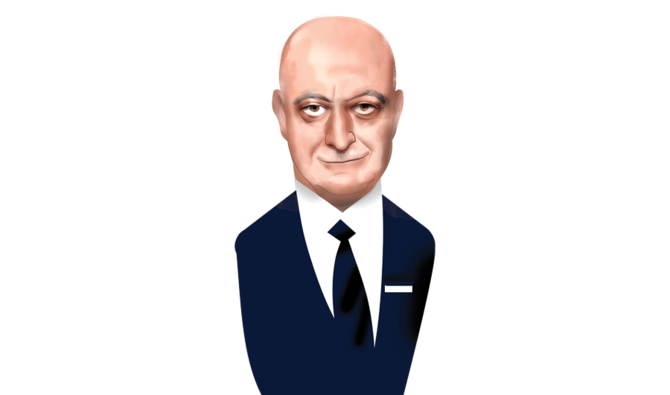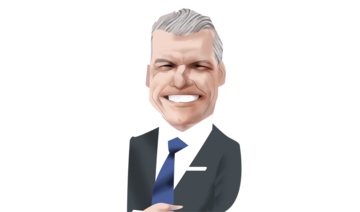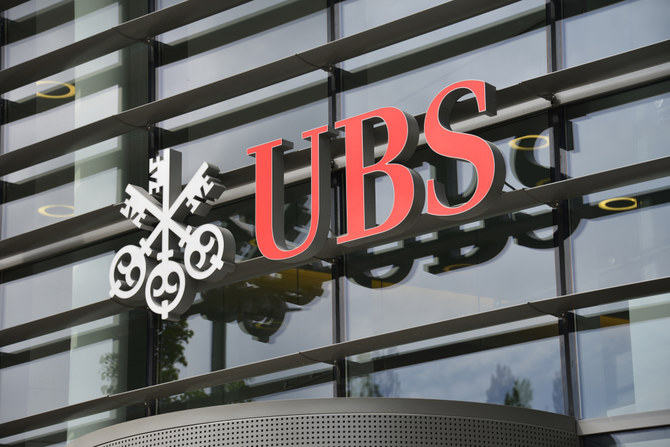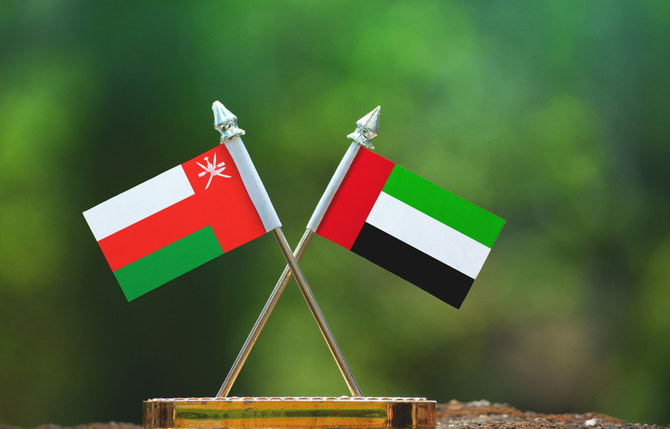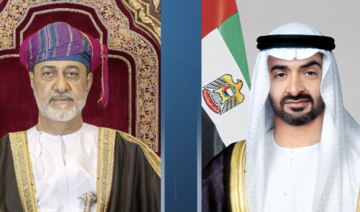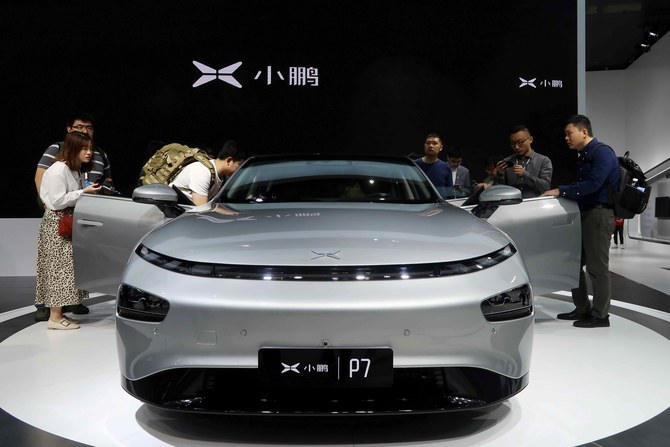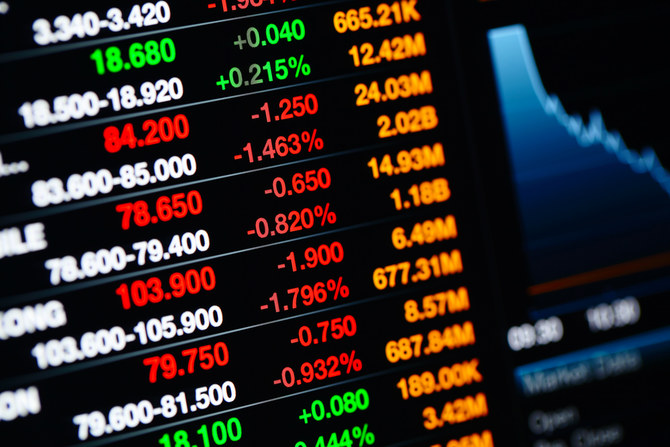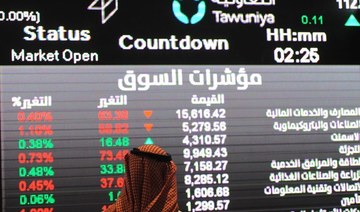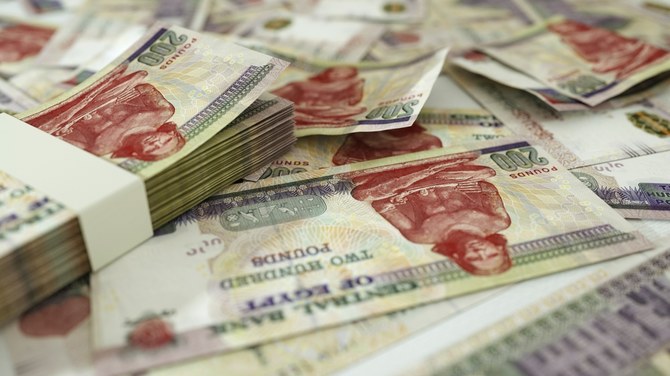Ziad Makhzoumi is ready for the next chapter. A serial entrepreneur, restructurer par excellence, corporate adviser and public speaker, the 64-year-old Lebanese-born executive is looking for a new challenge in a career that has made him one of the best-known figures in the regional business scene. “Retirement is not an option in the coming few years,” he told Arab News.
Since 2016, when Makhzoumi helped to put together the deal that saw fertility firm IVF Fakih sold to NMC Healthcare for more than 1.5 billion dirhams ($408 million) — then the biggest deal ever in the UAE health care sector — he has taken stock, written a book based on his immense corporate experience, and launched another start-up in the medical business that could have global ramifications.
The book, “Intelligent Learning: Competing in Systemic Chaos” is a manual for budding entrepreneurs, as well as a primer for more experienced executives and policymakers. “I wanted to write about my approach to strategy and problem-solving in business. The reason for my success over the years is my passionate drive to want to achieve positive outcomes in my personal and business life,” he said.
“When I advise businesses, many times I have been frustrated with people who are not interested in learning new things, they chose to ignore what is around them and are content with looking in one direction instead of seeing everything that is really there,” Makhzoumi said.
He was speaking in general terms, but perhaps his comments could be applied to the corporate situation for which he is still best known in the Middle East — the five-year stint when he was chief financial officer of Arabtec Holding, one of the UAE’s most prominent contracting groups, responsible for some of the Emirate’s globally iconic landmarks, including the Burj Khalifa, the world’s tallest building.
Arabtec, founded by his Lebanese compatriot Riad Kamal, had been a driving force behind the Dubai building boom of the early 2000s, but by the time the global financial crisis hit the region it was in all sorts of trouble, overextended and under financial pressure.
BIO
BORN: Beirut, Lebanon, 1955
EDUCATION
• University of Manchester, Alliance Manchester Business School
CAREER
- Consultant, Booz Allen Hamilton
- Chief financial officer, Arabtec Holdings
- CEO, IVF Fakih
- Adviser, Drake & Scull
- Founder and CEO, MAP Sciences
Makhzoumi kept the wolf from the door for a considerable time, and helped to organize the rescue of Arabtec by Abu Dhabi backers. But a change of strategic direction by the new management left him out in the cold. It also left him well-qualified to comment on the UAE’s current real-estate related challenges.
The country is still growing in economic terms, according to figures from the International Monetary Fund, but oversupply of property developments has taken the steam out of the real-estate market, formerly one of the drivers of the local economy. Levels of indebtedness remain stubbornly high despite several rounds of restructuring since the 2009 crisis.
Property valuations have been languishing just as the UAE gears up for Expo 2020, the global business fair on which a lot of hopes have been pinned. Makhzoumi believes there is still some work for policy-makers to do ahead of that event.
“The medium-term outlook for the UAE remains stable, underpinned by sizeable sovereign wealth fund assets, as well as the government’s commitment to forge ahead with reforms. However, sustaining robust non-oil growth after Expo 2020 remains a key priority, especially in the context of the likelihood that global oil demand will slow,” he said.
But his Arabtec experience, as well as a later short term as an adviser to another troubled UAE contractor, Drake & Scull, make him wary that the boom days will return any time soon. “The real-estate sector in Dubai is still suffering a correction cycle that has been extended based on over-optimistic expectations, which might not happen because of external factors like the global economic and trade situation.
“As a result the over-building and high prices of real estate will possibly increase the incidence of default by the buyers and developers, and thus affect the banks’ balance sheet. The cycle could directly affect the banking sector’s ability to lend to other businesses, especially SMEs which are vital for the diversification of the economy,” he said.
On the subject of diversification, Makhzoumi has had plenty of experience in Saudi Arabia, and takes a more optimistic view of developments in the Kingdom.
“I have worked in Saudi Arabia at different times in my professional life, in the Seventies, Eighties and in 2000, but never have I witnessed the vast changes that are happening now under the leadership of Crown Prince Mohammed bin Salman. The Vision 2030 strategy has highlighted the intent, and the leadership is delivering on its promise. We are seeing events that 20 years ago we would not even contemplate. It is all good and will get better,” he said.
Makhzoumi’s current big project could be a game-changer in the medical field. MAP Sciences, a UK-based company that offers state-of-the-art diagnostics, has developed an all-in-one test based on the high-tech spectral analysis of a simple blood spot, dried on to a blotting card, which could be used by an individual without medical staff and revealing the results within minutes.
He explained the sophisticated science behind the product. “Not only will this new test dramatically overcome the cost and phobia of venous blood draw, but the minuscule sample required is subjected to a new laboratory technology, termed ‘MALDI-ToF mass spectrometry,’ which is quicker, cheaper and better than current tests,” he said.
MAP is involved in projects around the world, including a potentially huge research initiative in China with the government of the city of Nanjing to provide an efficient and rapid diagnosis for Downs syndrome during pregnancy, as well as trials in some of the leading medical institutions in the UK. “We have started our male and female cancer screening tests that will soon offer the individual a home-screening test that is affordable, reliable and fast,” he said.
He is currently seeking funds from global investors to help fuel MAP’s next phase of growth.
Makhzoumi spends a lot of time in the UK working on the MAP business, and is a skeptical observer of the political scene. A natural conservative, he has become disillusioned with post-Brexit developments in the country, and has moved away from the current Tory party philosophy under leader Boris Johnson, who has just won a resounding election victory.
“I believe the UK cannot be completely isolated from the European Community, and should have approached the problem differently. Great Britain is not so great any more — racial bias and secular isolation has become an acceptable political stand. I hope the new government will bring unity and future clarity and make the UK united again and reclaim its leadership role on the world stage,” he said.
If his view of the UK is less than optimistic, the situation in his native Lebanon he regards as altogether more depressing. “Lebanon is a very sad story. My heart bleeds for a nation, claiming to be a modern republic after 15 years of civil war, built on democratic principles that accepts corruption and favoritism as a normal social and political standard,” he said.
“The economic system needs a complete overhaul and only honest and capable professionals should be appointed, who have the nation’s interest at heart, and not accept office as an opportunity for personal gains and to abuse the citizens of Lebanon,” he said.
Quoting Kahlil Gibran, Lebanon’s national philosopher, Makzoumi said: “Pity the nation divided into fragments, each fragment deeming itself a nation,” and added: “The future of Lebanon hinges on whether these barbed fragments can at last be overcome in the interest of a forging a nation greater than the sum of its parts. The overriding obstacle to realizing this vision is that Lebanon remains cursed by geography, and its core fragments are liberally supplied by powerful and ruthless foreign patrons.”
Maybe policy-makers need a dose of “Intelligent Learning”?
“The world is at war with itself, fueled by ideologies and economic and cultural assumptions that do not work together anymore, and old assumptions that are unreal. The world is going into a state of systematic chaotic disorganization. As individuals, governments, businesses and global citizens, we must learn differently,” he said.



